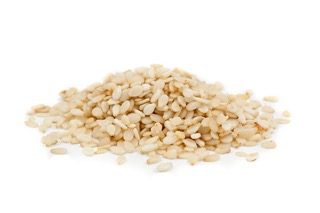

Dogs can eat black and white sesame seeds in moderation. Sesame seeds can help with constipation, but some dogs may be allergic to them.
Both black and white sesame seeds are safe for dogs and have different flavors. Sesame seeds can ease constipation, prevent cancer, promote strong bones, and alleviate joint pain.
Some dogs may develop an allergy to sesame seeds. Overconsumption can lead to diarrhea, vomiting, or bowel irritation. Sesame seeds can also be a choking hazard or cause intestinal obstruction, especially for dogs with stomach issues or pancreatitis.
Sesame seeds are safe for dogs as an occasional treat. The recommended serving size is 1/2 teaspoon to a teaspoon, depending on the dog’s size. Raw or roasted sesame seeds can be ground for easier digestion and more nutritional benefits. Sesame seeds can also be used in homemade dog treats.
Black and white sesame seeds can be a safe and tasty addition to your dog's diet when consumed in moderation. These seeds are also known as benne, benny seeds, or sesamum indicum. Sesame seeds originated in India, but now they are commonly used in many different cultures worldwide. Sesame seeds have a nutty flavor and are a source of healthy fatty acids, fiber, and vitamins.
Moreover, sesame seeds can help with constipation, promote strong bones, and alleviate joint pain in dogs. However, some dogs may develop an allergy to sesame seeds, and overeating can cause digestive problems. It's essential to monitor your dog's reaction and give them an appropriate serving size of 1/2 teaspoon to a teaspoon. If you want to try a new recipe, you can grind raw or roasted sesame seeds to use as a sprinkle or add to homemade dog treats.
As alternatives, you may consider giving your dog flaxseeds or chia seeds. Have you ever given sesame seeds to your dog? Share your experience in the comments below. Remember to always consult with your veterinarian about your dog's nutritional needs. Give your furry friend a pat on the back and a treat for being a good boy/girl!